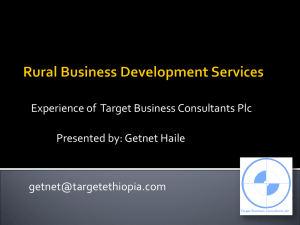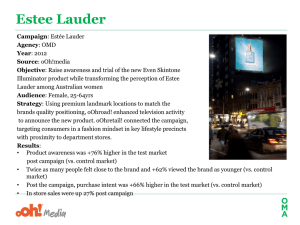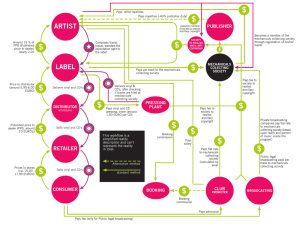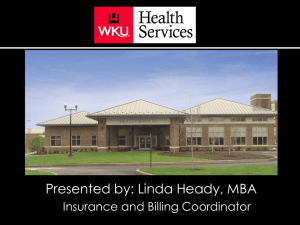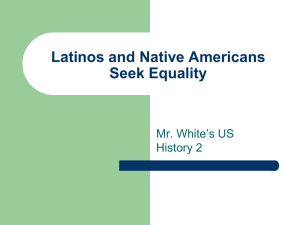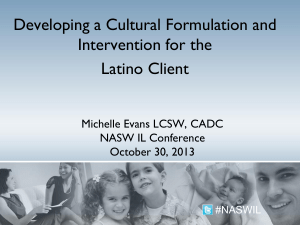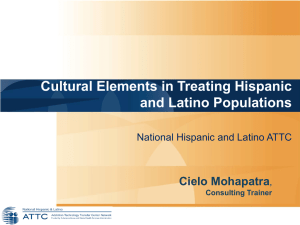All students - The College Board
advertisement
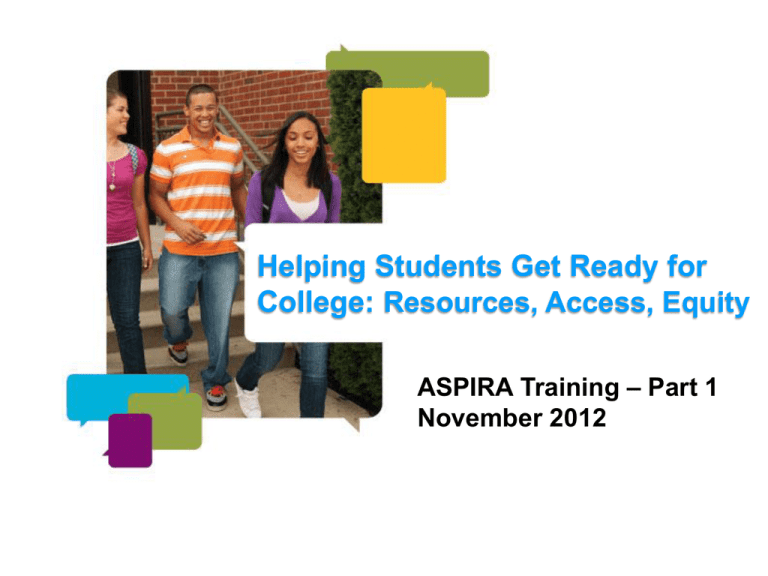
Helping Students Get Ready for College: Resources, Access, Equity ASPIRA Training – Part 1 November 2012 Agenda • • • • • Education Demographics Five Ways Education Pays YouCanGo! & BigFuture A Few Resources Questions & Answers Education Demographics Adriana Flores Senior Director, Diversity Initiatives Latino Students and College • In a 2010 survey, 87% of the Latinos surveyed said a college education is extremely important or very important.*** • Census figures show that only 19.2% of Latinos had an associates degree compared with 41.1% among Americans overall in the 25-34 age group.** • Latino students have a much higher dropout rate than African Americans or whites. Some 41% of Latino adults age 20 or older do not have a regular high school diploma, compared with 23% of black adults and 14% of white adults.* Sources: *Hispanics, High School Dropouts and the GED, May 13, 2010, Pew Hispanic Center **U.S. Census ***National Center for Educational Statistics, U.S. Department of Education Latino Student Transition to College Latinos are less likely to graduate from high school on time, and those who do are less likely to go straight to college. Public High School Average Freshman Graduation Rate 2007– 20081 Percentage of High School Graduates Enrolled in Two- or FourYear Colleges Immediately After Graduation 20072 91% 81% 75% 64% All Hispanic White 67% 64% 62% Black Asian AI/AN All 70% 61% Hispanic 56% White 1.NCES Public School Graduates and Dropouts from the Common Core of Data: School Year 2007-08 Black Five Ways Ed Pays Annika Many Senior Director, Advocacy College Board Advocacy & Policy Center Education Pays 2010 The Benefits of Higher Education for Individuals and Society • • • Part of Trends in Higher Education Series Focuses on nonmonetary benefits in addition to the financial returns of higher education Research Highlights: – – – – – – Individuals with higher levels of education earn more and are more likely than others to be employed. The financial return associated with additional years of schooling beyond high school and the gaps in earnings by education level have increased over time. College-educated adults are more likely than others to receive health insurance and pension benefits from their employers and to be satisfied with their jobs. Adults with higher levels of education are more engaged citizens than others. College education leads to healthier lifestyles, reducing health care costs for individuals and for society. College-educated parents engage in more educational activities with their children, who are better-prepared for school than other children. 8 How can we inform parents and students about the full benefits of earning a college degree? • Translate Education Pays: – Deliver compelling messages to parents – Create a vision for students — particularly first-generation, minority, and low-income — that college will change their life. • Strengthen college aspirations and parental support for children’s educational plans • Use language and graphics that connect with younger students and their families – English and Spanish Five Ways Ed Pays Parent Student Campaign • Research translated into a parent and student communication • Poster series • Brochures for counselors and parents • Ad series for school buses and mass transit • Houston Pilot Campaign Play • Online Toolkit Video Five Ways Ed Pays Resources • Free Campaign Materials – • Brochures, posters, 1-pagers; everything in English and Spanish Five Ways Ed Pays Campaign Overview Presentation – For use with your community • Five Ways Ed Pays Campaign Video • Five Ways Ed Pays Campaign Toolkit – • Everything you need to launch your own campaign Contact information for regional support from the College Board www.collegeboard.org/fivewaysedpays YouCanGo! & BigFuture Laura Barnes Senior Director, Digital College Planning Products A Little Background… Three years ago, the College Board set out to create new college guidance websites in order to democratize access to college-going information for all students. Vision and Purpose: Create a comprehensive and innovative online resource that helps all students aspire, find, connect, and enroll in the right college that sets them on the path for success in life Strong focus on meeting needs of underserved and lowresourced students Collaboration and Research • We partnered with the Education Conservancy , a non-profit organization committed to improving college admission processes for students, colleges and high schools • The collaboration is also guided by an advisory board of education practitioners (who represent a broad cross-section of education) • And it is strongly influenced by continued research, conversations, and collaboration with educators, educational organizations, and students. This includes a large amount of primary research with lower-resourced students: – – – Interviews Focus groups Surveys – User testing – Collaborative brainstorming Guiding Principles • Be educationally driven and student-centric • Reach more underserved, under-resourced students • Help students for whom the college planning process is confusing, intimidating and too costly • Support college planning as a student-directed process 5 Key Messages 1. College matters – for life 2. College is possible for most students 3. It’s important to find colleges that are the right fit for each student 4. College is probably more affordable than many families think 5. It’s important to start planning now So, what did we make? • • • • • • • Free Inspiration Simple guidance Practical Support Great Place to Start Simple, short college plans Target: lower-resourced students • • • • • • • Free Step-by-step guide to college Comprehensive guidance Many ways to get started Many ways to search for college Customizable college plans Target: All students [live demo] A Few Resources Resources for Spanish-Speaking Families Mentors play a vital role for students when they: • Meet with students regularly and often • Begin discussions early on in the high school career • Provide resources for financial aid process Resources to support counselors: 1. Major national campaigns: – – – 2. 3. Univision’s Es El Momento Telemundo’s Saber Es Poder Hispanic Scholarship Fund’s Your Words Today Professional development opportunities College Board programs and services ASPIRA’s College Board Webpage http://lp.collegeboard.org/aspira Questions & Answers For Additional Questions and Information ASPIRA@collegeboard.org Thank You! We’ll see you again Dec 7 for Part 2!
